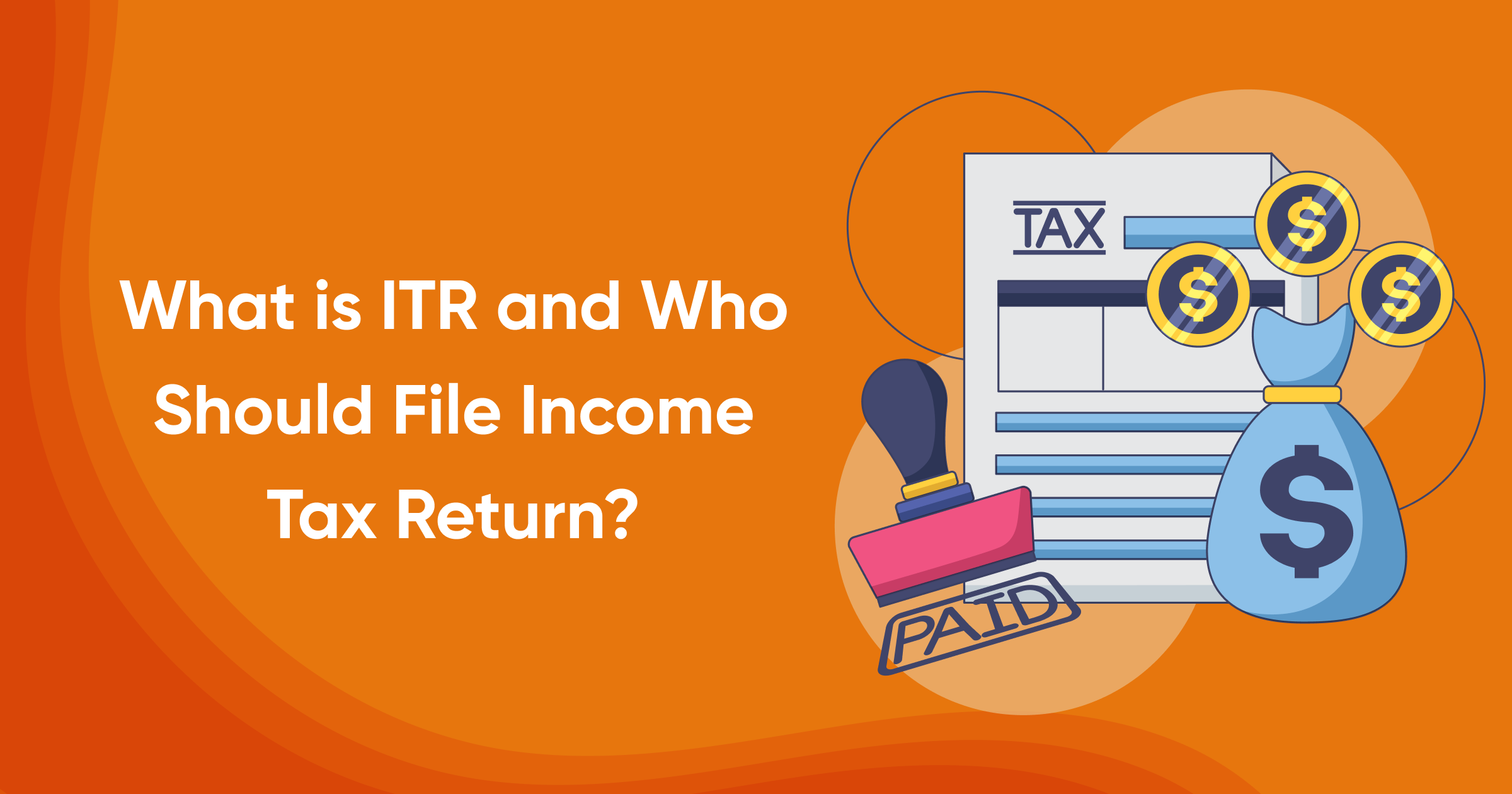Do You Need to File an Income Tax Return?
Ever come across the term ITR and wondered what it means? Or maybe you've heard whispers about filing one but felt overwhelmed by the whole process? Fear not, tax warriors! This blog is your one-stop guide to understanding Income Tax Returns (ITR) and whether you need to file one.
What is ITR?
Income Tax Return (ITR), in the context of India, is a crucial document you file with the Income Tax Department. It acts as your annual tax report card, meticulously detailing your income earned during a specific financial year (April 1st to March 31st of the following year) and the taxes you've already paid. Imagine it as a comprehensive report you submit to the government, essentially saying, "Here's a breakdown of my income for the year, along with the taxes I've already contributed."
The primary purpose of filing an ITR is to disclose your income to the Income Tax Department. This allows them to assess your tax liability accurately. Based on your income slab and deductions claimed, you might have additional tax to pay or be eligible for a tax refund.
Who Needs to File an ITR?
Not everyone needs to file an ITR. But like any good report card, there are situations where it's mandatory.
Here are some scenarios where you might need to file:
- Income Above the Exemption Limit: The basic exemption limit for income tax in India varies depending on your age and income source. If your income exceeds this limit, you'll likely need to file an ITR.
- Seeking a Tax Refund: Did you pay more tax than you owed during the year? Filing an ITR helps you claim that tax refund!
- Carrying Forward Losses: If you experienced business losses, filing an ITR allows you to carry those losses forward and offset them against future income.
- Loan Applications: Many lenders consider ITRs during loan applications. Filing an ITR can strengthen your application.
But It Seems Complicated!
While there are different ITR forms for various income types, the process isn't as scary as it seems. The Income Tax Department website offers resources and even step-by-step guides to filing your ITR online. Many tax professionals can help you navigate the process. Filing your ITR on time is crucial. Missing deadlines can lead to penalties.
Bonus Tip: Even if you aren't mandatory to file, consider the benefits of filing an ITR. It can help establish your financial credibility and make future loan applications smoother.
So, do you need to file an ITR? Check the income tax department website or consult a tax professional. But remember, knowledge is power! By understanding ITRs, you're taking control of your financial well-being. Now go out there and conquer that tax season!
Conquering Tax Season: A Guide to ITR Forms in India
Now that you know what ITRs are and why they might be important, let's delve a little deeper. With seven different ITR forms available, choosing the right one can feel like picking a lock without knowing the combination. But worry not, tax warriors! This part of the blog will equip you with the knowledge to pick the perfect ITR form.
Understanding the ITR Forms:
The Income Tax Department uses different ITR forms based on your income source and complexity. Here's a simplified breakdown of the most common ones:
- ITR-1 (Sahaj): This is the simplest form, ideal for salaried individuals with income solely from salary, interest on bank deposits, and house rent allowance.
- ITR-2: This form caters to individuals with income from various sources, including capital gains, rental income, and foreign income.
- ITR-3: This form is for businesses and professionals with income from professions like doctors, lawyers, or chartered accountants.
- ITR-4 (Sugam): This simplified form is for small businesses and individuals with income from businesses and professions with a turnover below Rs. 50 lakh.
Choosing Your ITR Form:
Here's a quick trick to identify the right form:
- Know Your Income Sources: Identify your primary source(s) of income – salary, business, capital gains, etc.
- Check the Complexity: If your income is straightforward, like just a salary, ITR-1 (Sahaj) might be your pick. For multiple income sources or business income, explore ITR-2, ITR-3, or ITR-4 based on your specific situation.
Conclusion
In conclusion, understanding and managing your Income Tax Return (ITR) is an essential aspect of financial responsibility in India. Whether you're a salaried employee, a freelancer, or a business owner, knowing when and how to file your ITR can significantly impact your financial health and compliance with tax laws. Additionally, registering with Trademarkia can ease the process, providing tailored guidance and support to navigate the complexities of tax filing.
Filing an ITR is not just about adhering to legal requirements; it also offers benefits such as facilitating loan approvals, claiming tax refunds, and maintaining a solid financial record. With the right tools and professional assistance, managing your taxes can be straightforward and stress-free. Remember, being proactive and informed about your tax obligations ensures peace of mind and financial security, allowing you to focus on growing your wealth and achieving your long-term financial goals.
Frequently Asked Questions
Who is required to file an ITR in India?
You are required to file an ITR if your gross total income exceeds the basic exemption limit, which varies based on age and type of income. Other situations requiring filing include seeking tax refunds, needing to carry forward losses, and applying for loans where proof of income is necessary.
What will happen if I do not file my Income Tax Return (ITR)?
Failing to file an ITR can result in penalties and interest on the due taxes. Additionally, it could lead to legal action for tax evasion, especially if the non-filing is deliberate and involves significant amounts of money.
Can I file an ITR if I had no income in the financial year?
Yes, you can voluntarily file a nil return. This is recommended if you need to maintain a continuous record of financial documentation, which can be useful for visa applications or loan approvals.
How do I choose the correct ITR form?
Choosing the correct ITR form depends on the nature and amount of your income. For example, salaried individuals generally use ITR-1 (Sahaj), while those with income from various sources, including capital gains or foreign income, might need to use ITR-2 or ITR-3. The Income Tax Department's website offers a tool to help determine the appropriate form for your circumstances.
What is the deadline for filing an ITR in India?
The usual deadline for filing an ITR is July 31 of the year following the financial year. However, this deadline may be extended by the government, as has occurred in recent years due to various reasons such as natural calamities or pandemics. Always check the latest updates on the Income Tax Department's website or through official notifications.







